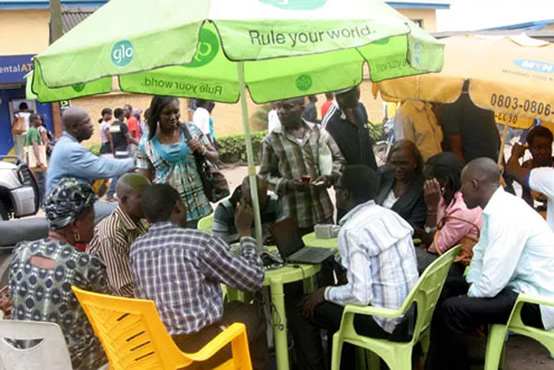Article
How to Retrieve Your National Identity Number (NIN) Number
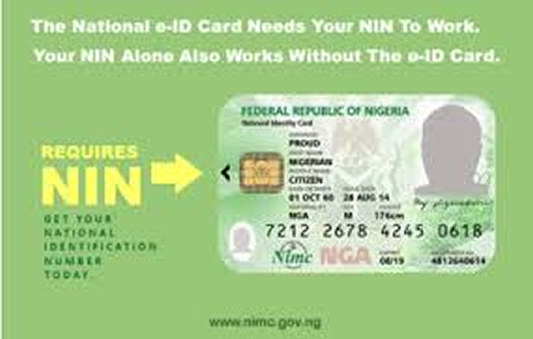
The National Identification Number (NIN) is the randomly chosen 11 non-intelligible numbers that is assigned to an individual after the completion of enrollment into the National Identity Database (NIDB) .
Enrollment is the capturing of an individual’s demographic data including the ten (10) fingerprints, head-to-shoulder facial picture and digital signature, which are all used to cross-check existing data in the National Identity Database to confirm that there is no previous entry of the same data.
js">The NIN is now very important for a number of official transactions such as for filling of some documents in banks, court, etc..
However, people are not aware how easy it can be to retrieve their NIN on their phone.
You can easily get your NIN without going to join the long queue at the NIMC office. Simply follow the following steps.
- Dial *346# from the phone number you use to register for your BVN.
- An option will comes up and ask you to retrieve your NIN number by replying 1, press 1 and enter.
- Your NIN number will be clearly display on your phone. Write it out and save it somewhere. The sms only cost N20..
Please share this post to your friends and family as it will save them from going through the hassle of getting their NIN.
Author Profile

- Prince Abdulrahman Obaje is a Media, Information and Computer Technology Consultant. A quintessential Journalist, online marketer, social media strategist, Mathematician and Computer Scientist is based in Abuja, Nigeria. He is the Founder and the Publisher of The Informavores!. You can reach me on +234 805 939 5252 or send i-witness report directly to me on news@informavores.com.ng.
Latest entries
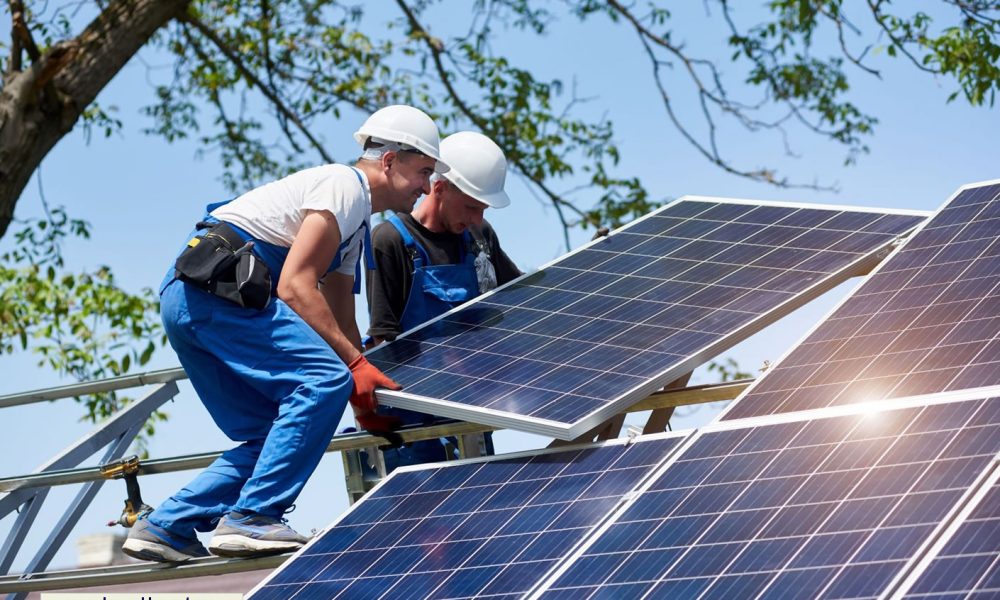 ArticleApril 24, 2024Preventing Fire Outbreak in Solar Power System Installation – Engr Ohida
ArticleApril 24, 2024Preventing Fire Outbreak in Solar Power System Installation – Engr Ohida PoliticsApril 23, 2024Alleged 80.2 Billion Fraud: EFCC May Loose Case Against Yahaya Bello – Ambassador Danjuma
PoliticsApril 23, 2024Alleged 80.2 Billion Fraud: EFCC May Loose Case Against Yahaya Bello – Ambassador Danjuma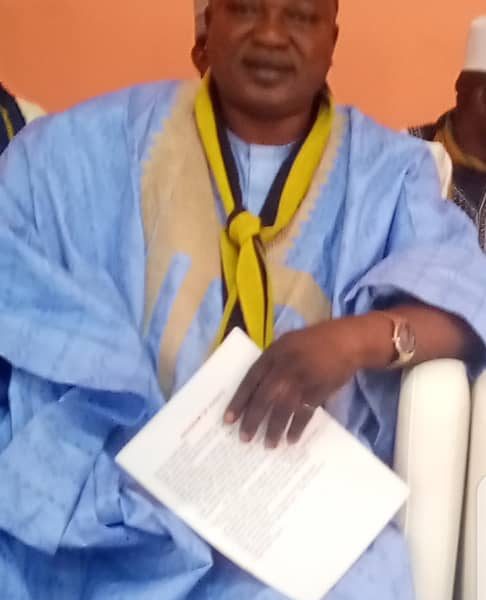 NewsApril 11, 2024Eid-El-Fitr: ICDA North Central Coordinator Urges Muslim Faithfuls To Abide By Ramadan Lessons
NewsApril 11, 2024Eid-El-Fitr: ICDA North Central Coordinator Urges Muslim Faithfuls To Abide By Ramadan Lessons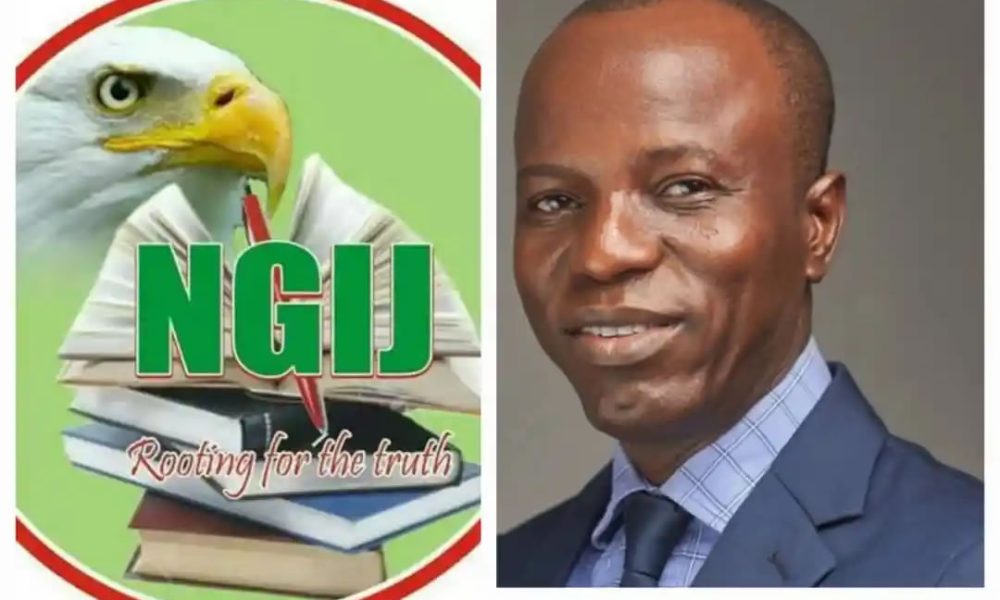 NewsMarch 20, 2024Investigative Journalists Group, NGIJ Hails Aderinokun on Appointment as Head of Media at Access Corp
NewsMarch 20, 2024Investigative Journalists Group, NGIJ Hails Aderinokun on Appointment as Head of Media at Access Corp
Article
Preventing Fire Outbreak in Solar Power System Installation – Engr Ohida
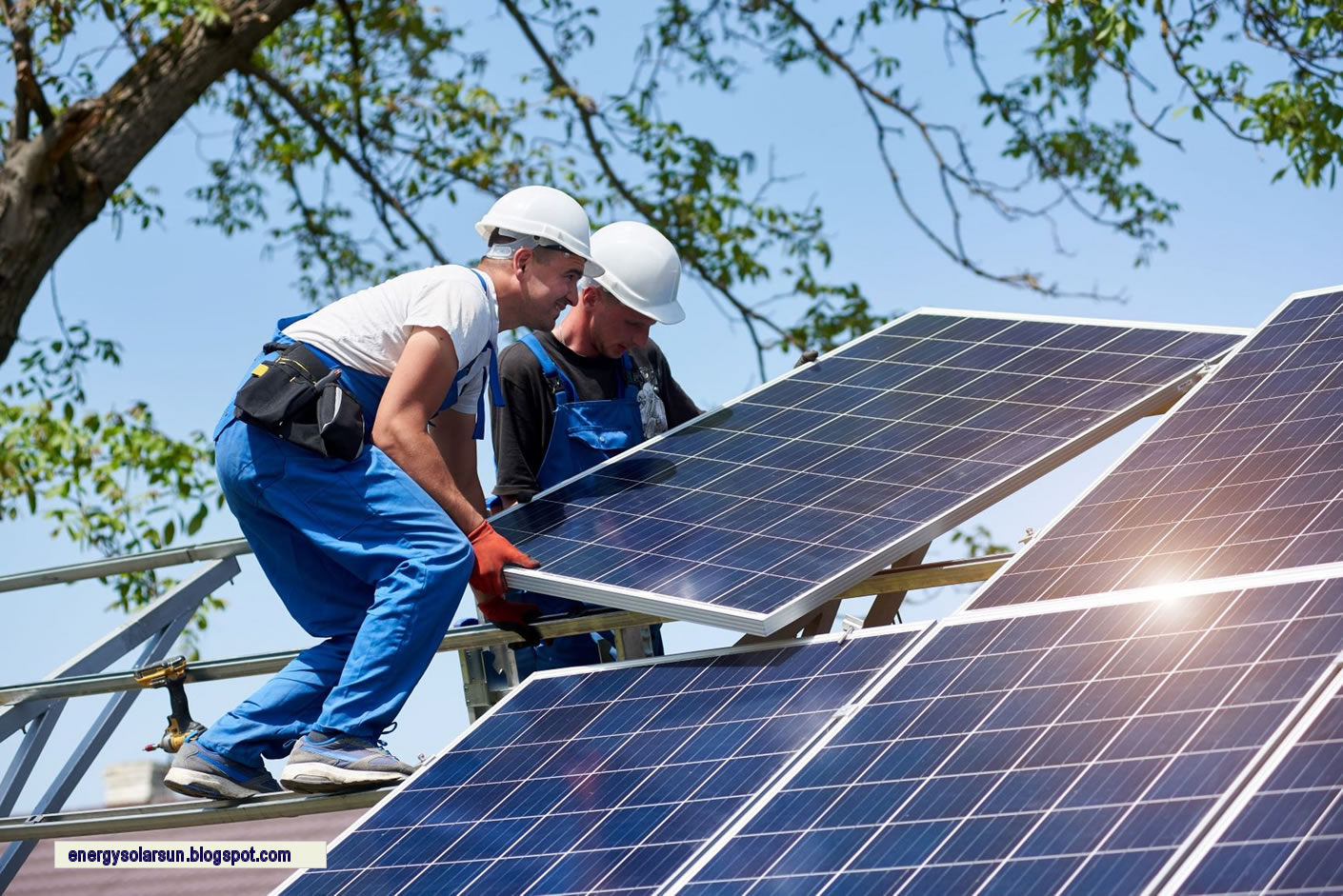
As the prevalent erratic power supply condition in the country worsen, many organisations, corporate and even governmental, households, individuals are now turning to solar power system installation as alternative power supply solution.
adsbygoogle || []).
push({});
Apart from it noiseless nature which makes it more attractive, solar power system has also been proven to be cost-effective, convenient, and a clean source of energy.
However, just like any other technology, there are also risks associated with this technology, especially when not properly installed or maintained.
An Abuja based Electrical Engineer, Engineer Maiyaki Ohida said solar power installation cannot cause fire outbreak as a result of heat if properly installed, adding that fire outbreak can only result when it is not properly installed or if there is maintenance issue.
Engineer Ohida revealed this, while responding to a question of whether Solar Power System Installation can cause fire outbreak when heated up; a question posed by a member of a social media platform.
Ohida said, “Solar panels can’t cause fire as a result of Sun heat, as they are produced to withstand high temperature.”
“What causes fire outbreak in solar system is wrong connections, short circuit, bad cable sizing for the installation, too high voltage to the charge controller, mixing of different types of panels together in series connection which will result in the cable and panels being heated up and catch fire after some time of use.”
He further revealed that using low quality panels can also result in fire outbreak when one panels in series failed resulting to voltage pressure on those panels behind the failed one. This can create enormous heat as Direct Current, (DC) heat is more serious compared to Alternating Current, (AC).
He said, “when you use low quality panels, one of them in series can fail and then there will be voltage pressure on those panels behind the failed one, creating heat (remember DC heat is more serious) and then fire”.
Therefore, avoid wrong connections, short circuit, bad cabling and sizing, high voltage to the charge controller, mixing of different types of panels in series connection when you are putting together your Solar System. Also imbibe good maintenance culture after the installation.
Author Profile

- Prince Abdulrahman Obaje is a Media, Information and Computer Technology Consultant. A quintessential Journalist, online marketer, social media strategist, Mathematician and Computer Scientist is based in Abuja, Nigeria. He is the Founder and the Publisher of The Informavores!. You can reach me on +234 805 939 5252 or send i-witness report directly to me on news@informavores.com.ng.
Latest entries
 ArticleApril 24, 2024Preventing Fire Outbreak in Solar Power System Installation – Engr Ohida
ArticleApril 24, 2024Preventing Fire Outbreak in Solar Power System Installation – Engr Ohida PoliticsApril 23, 2024Alleged 80.2 Billion Fraud: EFCC May Loose Case Against Yahaya Bello – Ambassador Danjuma
PoliticsApril 23, 2024Alleged 80.2 Billion Fraud: EFCC May Loose Case Against Yahaya Bello – Ambassador Danjuma NewsApril 11, 2024Eid-El-Fitr: ICDA North Central Coordinator Urges Muslim Faithfuls To Abide By Ramadan Lessons
NewsApril 11, 2024Eid-El-Fitr: ICDA North Central Coordinator Urges Muslim Faithfuls To Abide By Ramadan Lessons NewsMarch 20, 2024Investigative Journalists Group, NGIJ Hails Aderinokun on Appointment as Head of Media at Access Corp
NewsMarch 20, 2024Investigative Journalists Group, NGIJ Hails Aderinokun on Appointment as Head of Media at Access Corp
Article
Latest Report Reveals Oppo Smartphone Democratising Access To Professional-Grade Photography

By Abdulrahman Obaje
Improvements related to camera have been a major factor driving smartphone evolution over the past decade and the telephoto lens technology is among the important factors that determines how far the camera system can go, hence an indication of a larger trend in consumer behaviour, showing a preference for smartphones with enhanced photographic capabilities. adsbygoogle || []).push({}); adsbygoogle || []).push({}); January 2024 report of a market research firm, Counterpoint Research shows that the penetration rate has increased over the years to more than 19 per cent in H1 2023, nearly 3 per cent higher than it was in H1 2022.
So, what separates you from becoming a professional photographer this days is insignificant compare to the old ways of photography. It is just a thin line with the advent and rise in popularity of telephoto lenses in smartphones. This is because the growing trend in consumers’ desire for telephoto photography, something that can only be found exclusively in professional cameras; telephoto lenses integration in smartphones is now the main stay in the industry, a trend that industry player said is just the beginning of a larger trend.
Reports by Counterpoint had shed more light on the evolving landscape of smartphone photography. According to Counterpoint Research’s most recent report, more than 200 million telephoto lens-equipped smartphones were sold globally in 2022, with that figure expected to rise even further by 2024.
The telephoto lens feature was initially available exclusively on exceptional smartphones. However, the study has also found that mass-market adoption of telephoto lens is increasing, particularly among sub-$400 segments. The increasing popularity of telephoto lenses in affordable smartphones mirrors consumers’ inclination for advanced features without the accompanying high cost. In acknowledgment of this demand, smartphone manufacturers have promptly responded by enhancing their mid-tier line-ups with telephoto capabilities, enabling a broader audience to partake in upgraded photography experiences that were traditionally exclusive to high-end models.
Users can capture images that stand out for their precision and elegance. Apart from its ability to be able to capture a distant landscape, telephoto lens also stands out in shooting portrait as it can compress the subject and background, creating dramatic bokeh effect. The 50mm or 85mm equivalent focal length provides a field of view similar to human eyes with minimal distortions.
The report also revealed that these lenses are becoming increasingly integrated into smartphones around the globe. The ability to zoom without sacrificing image quality, combined with the unique visual effects a telephoto lens can produce, has made it a popular choice among smartphone users. The proportion of smartphones equipped with a telephoto camera has increased both internationally and in China, reaching 19.3% and 24.4%, respectively, demonstrating the importance of telephoto lenses in today’s mobile photography environment.
The report further revealed that the newly launched OPPO’s Reno11 series, positioned as “The Portrait Expert”, has been instrumental in bringing high-end telephoto lens features to more affordable smartphone models with the innovative “Telephoto Portrait” feature saying that OPPO has been instrumental in making high-quality mobile photography accessible to a greater majority of the masses.
“This strategic move by OPPO has not only democratized access to professional-grade photography features but also underscored the brand’s position as a leader in mobile photography innovation. ”, it said
The Reno11 series boasts features such as a 32MP 2x optical zoom camera powered by Sony IMX709 flagship sensor, enabling users to capture sharp, detailed images from a distance. The series also integrates advanced AI algorithms to enhance image quality, especially in portrait photography, providing users with the tools to capture life’s moments with unparalleled clarity and creativity.
The report thereby anticipates a positive outlook for telephoto lenses, affirming their pivotal contribution to the progression of mobile photography.
The integration of telephoto lenses is just the beginning of a larger trend. The future of mobile photography is expected to see upward progression, with telephoto lenses playing a significant role in how consumers capture and engage with the world around them. This trend is poised to redefine the standards of mobile photography, pushing the boundaries of what smartphones can achieve.
Abdulrahman Obaje is a Journalist, Mathematician and Computer Scientist based in Abuja, Nigeria.
Author Profile

- Prince Abdulrahman Obaje is a Media, Information and Computer Technology Consultant. A quintessential Journalist, online marketer, social media strategist, Mathematician and Computer Scientist is based in Abuja, Nigeria. He is the Founder and the Publisher of The Informavores!. You can reach me on +234 805 939 5252 or send i-witness report directly to me on news@informavores.com.ng.
Latest entries
 ArticleApril 24, 2024Preventing Fire Outbreak in Solar Power System Installation – Engr Ohida
ArticleApril 24, 2024Preventing Fire Outbreak in Solar Power System Installation – Engr Ohida PoliticsApril 23, 2024Alleged 80.2 Billion Fraud: EFCC May Loose Case Against Yahaya Bello – Ambassador Danjuma
PoliticsApril 23, 2024Alleged 80.2 Billion Fraud: EFCC May Loose Case Against Yahaya Bello – Ambassador Danjuma NewsApril 11, 2024Eid-El-Fitr: ICDA North Central Coordinator Urges Muslim Faithfuls To Abide By Ramadan Lessons
NewsApril 11, 2024Eid-El-Fitr: ICDA North Central Coordinator Urges Muslim Faithfuls To Abide By Ramadan Lessons NewsMarch 20, 2024Investigative Journalists Group, NGIJ Hails Aderinokun on Appointment as Head of Media at Access Corp
NewsMarch 20, 2024Investigative Journalists Group, NGIJ Hails Aderinokun on Appointment as Head of Media at Access Corp
Article
Why We Must Not Lose Guard About The Potential Risks Of AI – Part 1

By Abdulrahman Obaje
The most globally talked about scientific discipline at present is AI, short form of Artificial Intelligence, garnering attentions from main stream media organisations such as CNN, BBC, Forbes, New York Times, Daily Trust newspaper and the kinds of them. adsbygoogle || []).push({}); adsbygoogle || []).push({}); Unfortunately this technology also poses the most threats to society and humanity at present.
AI is a scenario whereby a piece of an electronic device or software behaves as though it is digital human assistant. Some can make and take decisions that ordinarily may take time for human being to accomplish. AI-based device may be trained to even perform responsibilities that usually requires human intelligence to accomplish. Such tasks include solving complex mathematical problem, complex medical diagnosis, language translation, etc.
Example include Language translators, Facial recognition capabilities on mobile phones and other devices, Facebook’s language translation feature, Google Assistant on Android, Siri on iPhones, friend suggestions on Facebook to mention but few. An AI-based system can actually act like a smart helpful digital friend.
AI serves as the foundation for transformative technologies like the much talked about ChatGPT with more than 18 million active users daily. Now, the GPTs store has been launched for business. Also, AI non-invasive device to read what a human is thinking in his mind, convert it to text and display the text on a screen. The research that has been conducted and pilot tested in the University of Sydney has a multifaceted benefit to the human. Anyone with speech impairment can use the device to communicate his or her thoughts and wants with people without talking.
As modern Artificial Intelligent-based systems are now being trained to learn from past experience; in the form of gathered information, making it able to adjust to new information that enable it to be independent in some areas to some extents, the voice of warning against the potential risks of AI is growing louder.
The tech community has long debated the threats posed by artificial intelligence. Automation of jobs, the spread of fake news and a dangerous arms race of AI-powered weaponry have been mentioned as some of the biggest threats posed by AI.
There is also growing concerns that these things could get more intelligent than the humans and that they could one day decide to take over, and that there is why we need to worry about how we prevent that from happening.
A Computer Scientist, Geofrey Hinton also dubbed as the Godfather of Artificial Intelligence, a name he got from his foundational work on machine learning and neural network algorithm, in 2023 left his position at Google to talk about the risk of Artificial Intelligence, insinuating that a part of him even regrets his life’s work.
Hinton is not alone in this concerns. More than 20,000 tech leaders had in March 2023 persuaded in an open letter to put a pause on large AI experiments, citing that the technology can pose profound risk to society and humanity.
According to Wikipaedia, Pause Giant AI Experiments: An Open Letter is the title of a letter published by the Future of Life Institute in March 2023. The letter calls “all AI labs to immediately pause for at least 6 months the training of AI systems more powerful than GPT-4”, citing risks such as AI-generated propaganda, extreme automation of jobs, human obsolescence, and a society-wide loss of control. It received more than 20,000 signatures, including academic AI researchers and industry CEOs such as Yoshua Bengio, Stuart Russell, Elon Musk, Steve Wozniak and Yuval Noah Harari.
One of the risks posed by AI system is the lack of AI transparency and explainability. This is as AI and deep learning models can be difficult to understand, even for those that are working directly with the technology. This leads to a lack of transparency for why and how Artificial Intelligence comes to its conclusions. This conclusion cannot be trusted one hundred percent of times because of lack of explanation for what data AI algorithms use, or why AI may make biased or unsafe decisions. These concerns explain the rise to the use of explainable AI, but there’s still a long way before transparent AI systems can become common practice.
The second area of concern is job loss due to job automation. As AI-powered job automation is adopted in industries like marketing, manufacturing and healthcare. By 2030, tasks that account for up to 30 percent of hours currently being worked in the U.S. economy could be automated. According to McKinsey. Black and Hispanic employees especially is more vulnerable to the change while Goldman Sachs even states 300 million full-time jobs could be lost to AI automation.
“The reason we have a low unemployment rate, which doesn’t actually capture people that aren’t looking for work, is largely that lower-wage service sector jobs have been pretty robustly created by this economy,” futurist Martin Ford told Built In. With AI on the rise, though, “I don’t think that’s going to continue.”
As AI robots become smarter and more dexterous, the same tasks will require fewer humans. And while AI is estimated to create 97 million new jobs by 2025, many employees won’t have the skills needed for these technical roles and could get left behind if companies don’t upskill their workforces.
The third area of risks poses by AI is Social manipulation. This fear has become a reality as politicians rely on platforms to promote their viewpoints. For example Ferdinand Marcos, Jr., wielded a TikTok troll army to capture the votes of younger Filipinos during the Philippines’ 2022 election.
TikTok, which is one example of a social media platform that relies on AI algorithms, fills a user’s feed with content related to previous media they’ve viewed on the platform. Criticism of the app targets this process and the algorithm’s failure to filter out harmful and inaccurate content, raising concerns over TikTok’s ability to protect its users from misleading information.
Online media and news have become even murkier in the wake of AI-generated content such as images and videos, AI voice changers as well as deepfakes infiltrating political and social spheres. These technologies make it easy to create realistic photos, videos, audio clips or replace the image of one figure with another in an existing picture or video. As a result, bad actors have another avenue for sharing misinformation and war propaganda, creating a nightmare scenario where it can be nearly impossible to distinguish between creditable and faulty news.
“No one knows what’s real and what’s not,” Ford said. “So it really leads to a situation where you literally cannot believe your own eyes and ears; you can’t rely on what, historically, we’ve considered to be the best possible evidence… That’s going to be a huge issue.”
Abdulrahman Obaje is a Journalist, Mathematician and Computer Scientist based in Abuja, Nigeria.
Author Profile

- Prince Abdulrahman Obaje is a Media, Information and Computer Technology Consultant. A quintessential Journalist, online marketer, social media strategist, Mathematician and Computer Scientist is based in Abuja, Nigeria. He is the Founder and the Publisher of The Informavores!. You can reach me on +234 805 939 5252 or send i-witness report directly to me on news@informavores.com.ng.
Latest entries
 ArticleApril 24, 2024Preventing Fire Outbreak in Solar Power System Installation – Engr Ohida
ArticleApril 24, 2024Preventing Fire Outbreak in Solar Power System Installation – Engr Ohida PoliticsApril 23, 2024Alleged 80.2 Billion Fraud: EFCC May Loose Case Against Yahaya Bello – Ambassador Danjuma
PoliticsApril 23, 2024Alleged 80.2 Billion Fraud: EFCC May Loose Case Against Yahaya Bello – Ambassador Danjuma NewsApril 11, 2024Eid-El-Fitr: ICDA North Central Coordinator Urges Muslim Faithfuls To Abide By Ramadan Lessons
NewsApril 11, 2024Eid-El-Fitr: ICDA North Central Coordinator Urges Muslim Faithfuls To Abide By Ramadan Lessons NewsMarch 20, 2024Investigative Journalists Group, NGIJ Hails Aderinokun on Appointment as Head of Media at Access Corp
NewsMarch 20, 2024Investigative Journalists Group, NGIJ Hails Aderinokun on Appointment as Head of Media at Access Corp


